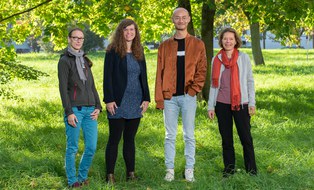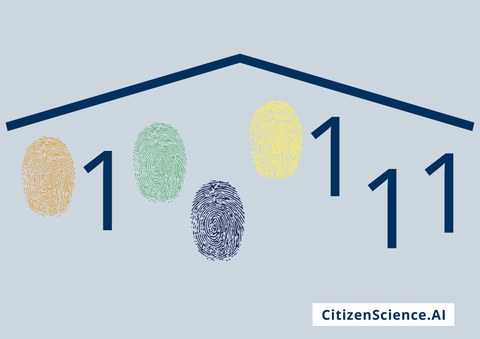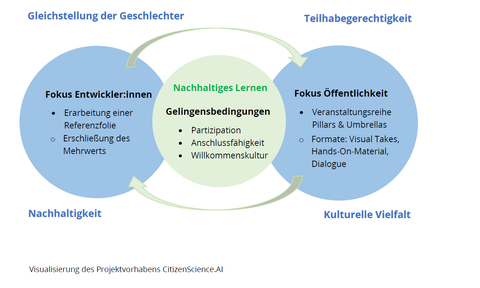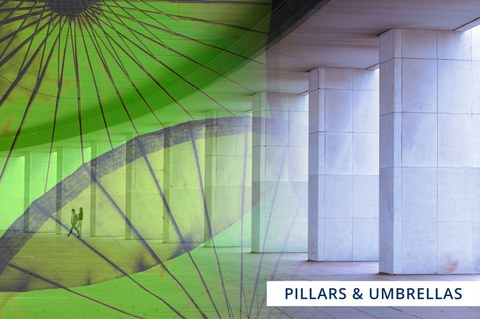CitizenScience.AI
Im Jahr 2022 war der Auftakt für eine Plattform, bei der es in interaktiven Formaten um die Verbindungslinien zwischen Künstlicher Intelligenz (KI) und gesellschaftlich relevanten Themen geht. Das Vorhaben wird im Rahmen der Gleichstellungsstrategie des Center for Scalable Data Analytics and Artificial Intelligence (ScaDS.AI) Dresden/Leipzig in Zusammenarbeit mit der Research Area Responsible AI umgesetzt.
Was ist ScaDS.AI Dresden/Leipzig?
Das Center for Scalable Data Analytics and Artificial Intelligence (ScaDS.AI) Dresden/Leipzig ist ein im Rahmen der KI-Strategie des Bundes gefördertes Zentrum für Künstliche Intelligenz. Das KI-Kompetenzzentrum wird künftig zu 17 Forschungsthemen in fünf miteinander verknüpften Bereichen der KI, Big Data und Datenwissenschaften forschen. Die schnelle Überführung der Forschungsergebnisse in wissenschaftliche und geschäftliche Anwendungen wird fokussiert. Das Transfer- und Servicezentrum dient dabei als Schlüsselfaktor für neue Kooperationen und erfolgreiche Transferaktivitäten in zahlreichen Projekten in Wissenschaft und Industrie.
Was ist unser Anliegen?
Unsere inhaltlichen Themenschwerpunkte bei diesem Vorhaben sind:
- Gleichstellung der Geschlechter
- Teilhabegerechtigkeit
- Nachhaltigkeit und kulturelle Vielfalt
Zum einen wird eine qualitativ-explorative Studie mit diversen Entwickler:innen am ScaDS.AI Dresden/Leipzig durchgeführt. Hierzu wurde ein Interview-Leitfaden entwickelt, welcher die oben benannten Kernthemen integriert. Die Unterrepräsentanz von Frauen im KI-Sektor sowie deren Auswirkungen auf Technologieentwicklung und gesellschaftliche Fairness wurden auch in einer Studie des Fraunhofer-Instituts für Arbeitswirtschaft und Organisation analysiert. Diese hebt hervor, dass generative KI neue Berufsbilder schafft, die traditionelle Kompetenzprofile aufbrechen und Diversität fördern können.
Zum anderen nutzen wir verschiedene Veranstaltungsformate, um mit Fokus auf die Gruppe der Nutzer:innen innerhalb und außerhalb des Universitätscampus über die vielfältigen Möglichkeiten, aber auch Grenzen von KI und deren Einfluss auf gesellschaftliche Prozesse zu informieren und zu diskutieren. Bei allen Interaktionen kommen verschiedene Methoden nachhaltigen Lernens zur Anwendung. Wichtig ist uns auch die Organisation und Durchführung eines offenen und internationalen Dialogs über die Herausforderungen der Einbindung von KI in verschiedene Gesellschaften und Kulturmilieus unter den Rahmenbedingungen globaler Spannungen.
All dies findet in der Veranstaltungsreihe PILLARS & UMBRELLAS statt.
Die Ergebnisse beider Aktivitätsstränge werden miteinander im Sinne des Transfergedankens rückgekoppelt.
 © Michael Kretschmar
© Michael Kretschmar
Project Team CitizenScience.AI
Eine verschlüsselte E-Mail über das SecureMail-Portal versenden (nur für TUD-externe Personen).
Dieses Projekt wird gefördert vom Bundesministerium für Bildung und Forschung (BMBF) und dem Freistaat Sachsen im Rahmen der Exzellenzstrategie von Bund und Ländern.



